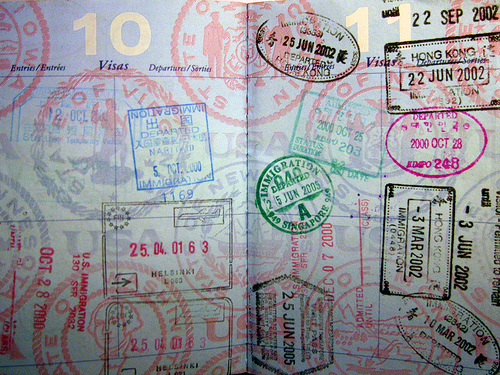By Claire Klieger
I guess the Twilight series had a more profound impact on college pop culture than I thought because earlier this week we actually found some fake vampire teeth in our waiting area at Career Services. (Sorry, if they were yours and you were hoping to claim them, I’m afraid they’ve already found their way to the trash). While it should be obvious that fangs are inappropriate interview attire (and I would think inappropriate to bring to Career Services in general—but hey, maybe that’s just me), students do often agonize about what is appropriate to wear to interviews.

As we enter into the start of OCR interviews this week, here are some tips:
1) Go easy on the “pieces of flair.” I once saw an interviewing guide that encouraged people to wear no more than 13 accessories, but I think even that is too much (frankly, I’m not sure I could even list 13 different types of accessories). Any jewelry you wear should be fairly subtle. Avoid overly large or dangly earrings and especially if you have a facial piercing, you may want to consider removing it for the interview. Essentially, you don’t want to wear anything that will distract from what you are saying.
2) Skin is not in. As popular as they may be at frat parties the world over, short skirts or low cut tops are not a good idea. Trust me ladies, those are not the assets you want to be stressing in your interview. Skirts lengths should be right around your knee and while you certainly don’t have to wear a turtle neck, use good judgment about necklines.
3) Know “the uniform.” What you wear to an interview depends a lot on the culture of the organization in which you’re planning to work. For more conservative industries like finance and consulting, this means wearing a dark suit, and ideally, for women, a skirt suit. However, for interviews with say….Polo Ralph Lauren, what you wear is a chance to highlight your fashion sense, which is much more central to your job. Similarly, for interviews at tech organizations that often have a more business casual working environment, you may look much more like a member of the team if you dress in business casual attire.
What you wear to an interview should be something that makes you feel confident, which, in turn, will help you come across that way to a recruiter. The best attire draws the attention to your face because ultimately, you want to remembered for what you say, not what you wear.










